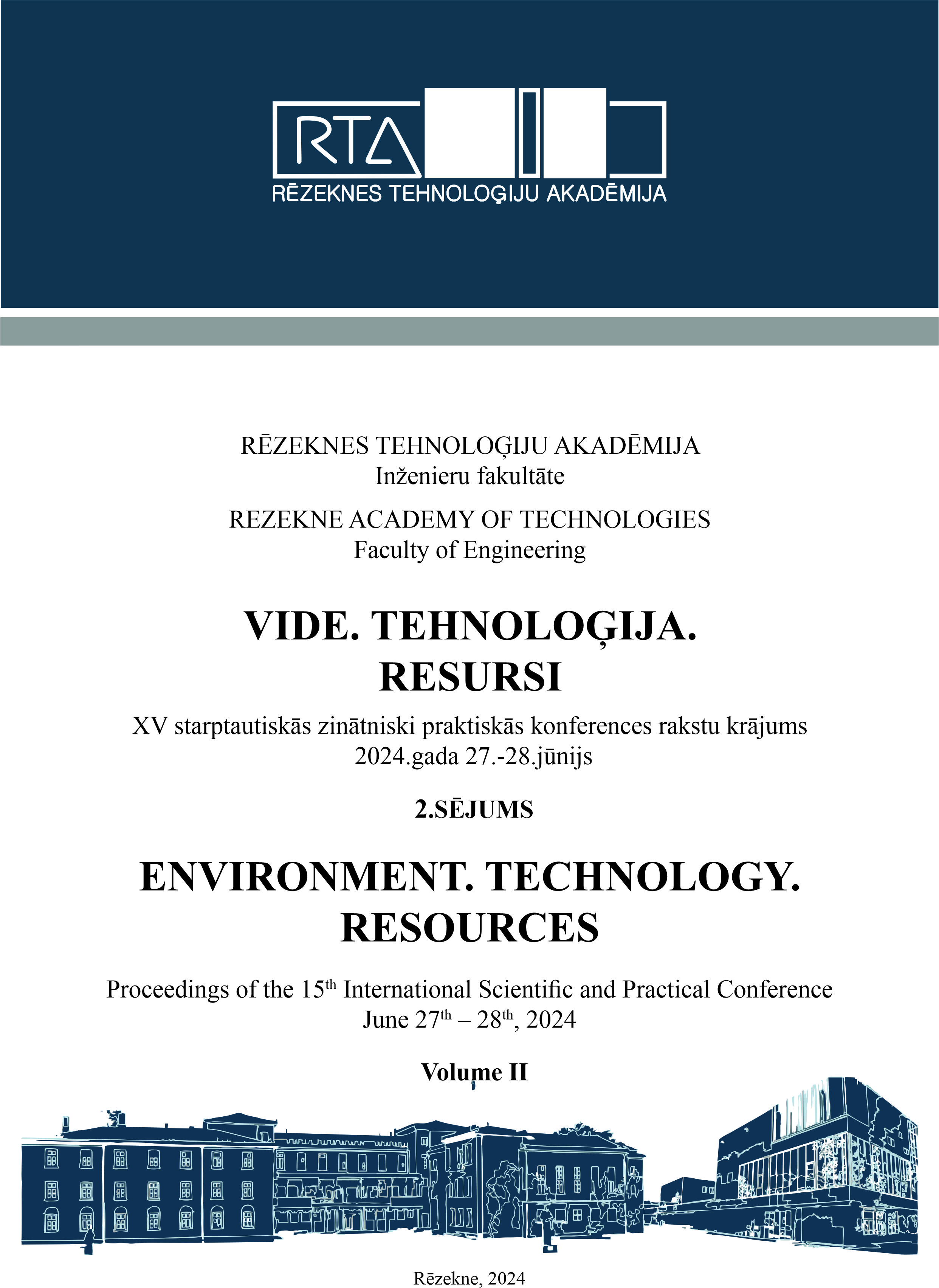ORGANISING PERSONALISED LEARNING IN THE ENGLISH LANGUAGE CLASSROOM: COMPUTER ENGINEERING AND INFORMATION TECHNOLOGY UNDERGRADUATES PERSPECTIVES
DOI:
https://doi.org/10.17770/etr2024vol2.8092Keywords:
Computer Engineering and Information Technology undergraduates; English communication skills; English language personalised learningAbstract
The more rapidly the area of information technologies develops, the higher are the requirements for training Computer Engineering and Information Technology students. Computer Engineering and Information Technology students training should be aimed at equipping them with subject-specific knowledge, on the one hand, and skills of the 21st century including strong communication skills in English, on the other hand. As practice shows good communication skills in English may lead to better job opportunities, more stable and prosperous future. The desire to succeed in mastering communication skills in English is directly related to Computer Engineering and Information Technology students’ attitudes towards both English as a discipline and activities used in the English language classroom. Computer Engineering and Information Technology students show interest and enjoy learning only when it becomes personally meaningful to them. The research aim is to find out Computer Engineering and Information Technology undergraduates’ opinions on organising personalised learning in the English language classroom aimed at developing their communication skills. The researchers used a convenience sampling technique to select the research population. The research population comprised 273 Computer Engineering and Information Technology first and second year students from Kyiv National Economic University named after Vadym Hetman and Kyiv National University of Technologies and Design. To collect statistical data on Computer Engineering and Information
Technology undergraduates’ opinions on organising personalised learning in the English language classroom the team of researchers developed a questionnaire and data collection took place in September-December 2023.
References
R. Palos and M. C. Petrovici, “Perceived importance of communication skills and their predictive value for academic performance”, Revista de Cercetare si Interventie Sociala, vol. 46, pp. 85-98, 2014. [Online]. Available: https://www.researchgate.net/publication/286062837_Perceived_importance_of_communication_skills_and_their_predictive_value_for_academic_performance. [Accessed: Jan. 28, 2024].
V. Saravanan and G. Sankar, “Enhancing Communication Skills of Engineering Students”, European Journal of Molecular & Clinical Medicine, vol. 7(11), pp. 5358-5362, 2020.
Y. Akyuz, “Personalized Learning in Education,” American Scientific Research Journal for Engineering, Technology and Sciences, vol. 69(1), pp. 175-194, 2020. [Online]. Available: Academia https://www.academia.edu/87065837/Personalized_Learning_in_Education. [Accessed: Nov. 29, 2023].
M. Bulger, “Personalised Learning: The Conversations We’re Not Having,” Data and Society Research Institute, 2016. [Online]. Available: https://www.datasociety.net/pubs/ecl/PersonalizedLearning_primer_2016.pdf. [Accessed: Nov. 27, 2023].
A. Shemshack and J. M. Spector, “A systematic literature review of personalized learning terms,” Smart Learning Environments, 7:33, 2020. [Online]. Available: Springer Open, https://slejournal.springeropen.com/articles/10.1186/s40561-020-00140-9. [Accessed: Oct. 17, 2023], https://doi.org/10.1186/s40561-020-00140-9
O. Malykhin, N. Aristova and S. Melikova, “Developing Computer Engineering and Information Technology Undergraduates’Learner Autonomy: Individualised Instruction in English Classroom,” In Proc. ETR International Scientific and Practical Conference, 2023, vol. 2, pp. 176-181, https://doi.org/10.17770/etr2023vol2.7274
A. A. Shah, Z. F. Syeda and S. Naseer, “University Students’ Communication Skills as a Determinant of Academic Achievement,” Sir Syed Journal of Education & Social Research, vol. 3, Issue 2, 2020 (April – June), pp. 107-114. [Online]. Available: https://doi.org/10.36902/sjesr-vol3-iss2-2020(107-114) Available: Researchgate https://www.researchgate.net/publication/342645674_University_Students%27_Communication_Skills_as_a_Determinant_of_Academic_Achievement [Accessed Feb 2, 2024].
P. Gruba, R. Al-Mahmood, “Strategies in Communication Skills Development”, 2004. [Online]. Available https://citeseerx.ist.psu.edu/document?repid=rep1&type=pdf&doi=f7febc1da637afdacd7352c8fd11c067d8760d23 [Accessed: Dec. 17, 2023].
J. T. Havill and L. D. Ludwig, “Technically speaking: fostering the communication skills of computer science and mathematics students,” ACM SIGCSE Bulletin, vol. 39 (1), pp. 185-189, https://doi.org/10.1145/1227504.1227375
A. A. Asemanyi, “An Assessment of Students' Performance in Communication Skills: A Case Study of the University of Education Winneba,” Journal of Education and Practice, vol. 6, no. 1, pp. 1-7, 2015. [Online]. Available: Eric https://eric.ed.gov/?id=EJ1086368 [Accessed: Nov. 9, 2023].
Downloads
Published
Issue
Section
License
Copyright (c) 2024 Oleksandr Malykhin, Nataliia Aristova, Liudmyla Dybkova

This work is licensed under a Creative Commons Attribution 4.0 International License.



